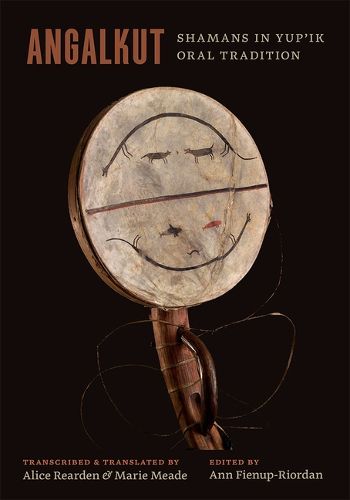Readings Newsletter
Become a Readings Member to make your shopping experience even easier.
Sign in or sign up for free!
You’re not far away from qualifying for FREE standard shipping within Australia
You’ve qualified for FREE standard shipping within Australia
The cart is loading…






Angalkut/Shamans in Yup'ik Oral Tradition collects over thirty years' worth of shaman stories, told as part of gatherings organized by the Calista Elders Council to document Yup'ik traditional knowledge. These conversations highlight the critical role angalkutplayed in Yup'ik life--healing the sick, interpreting dreams and unusual experiences, requesting future abundance through masked dances and other ceremonies, protecting the lives of young children, and dealing with the dead. The book begins with an English introduction that places Yup'ik oral traditions in the context of shamanism in Alaska and other parts of the Arctic. Then first-person accounts presented in the original Yup'ik with an accompanying English translation discuss the importance of shamans and shamanism in general, good and bad shamans, and shamans as healers. Narratives from Nelson Island, Canineq, Kuskokwim River, Akulmiut, and Yukon River describe shamans as healers, shaman journeys and performances, shamans and masked dances requesting abundance, shamans and the dead, malicious shamans, shaman confrontations, becoming a shaman, and those who have shaman abilities today. A detailed glossary and references are also included.
Today, not only are these angalkut gone, but so are those who witnessed and participated in their activities. Angalkut/Shamans in Yup'ik Oral Tradition is the first book devoted exclusively to Yup'ik angalkut; never before has the variety of angalkut roles been profiled in publication, including the richness of elders' recollections of these individuals and their roles. There is great value in the stories they left behind. This fine-grained presentation of unique, bilingual first-person narratives is an essential resource for scholars and students interested in Yup'ik heritage, Yugtun language, shamanism ethnography, and Alaska Native oral traditions.
$9.00 standard shipping within Australia
FREE standard shipping within Australia for orders over $100.00
Express & International shipping calculated at checkout
Angalkut/Shamans in Yup'ik Oral Tradition collects over thirty years' worth of shaman stories, told as part of gatherings organized by the Calista Elders Council to document Yup'ik traditional knowledge. These conversations highlight the critical role angalkutplayed in Yup'ik life--healing the sick, interpreting dreams and unusual experiences, requesting future abundance through masked dances and other ceremonies, protecting the lives of young children, and dealing with the dead. The book begins with an English introduction that places Yup'ik oral traditions in the context of shamanism in Alaska and other parts of the Arctic. Then first-person accounts presented in the original Yup'ik with an accompanying English translation discuss the importance of shamans and shamanism in general, good and bad shamans, and shamans as healers. Narratives from Nelson Island, Canineq, Kuskokwim River, Akulmiut, and Yukon River describe shamans as healers, shaman journeys and performances, shamans and masked dances requesting abundance, shamans and the dead, malicious shamans, shaman confrontations, becoming a shaman, and those who have shaman abilities today. A detailed glossary and references are also included.
Today, not only are these angalkut gone, but so are those who witnessed and participated in their activities. Angalkut/Shamans in Yup'ik Oral Tradition is the first book devoted exclusively to Yup'ik angalkut; never before has the variety of angalkut roles been profiled in publication, including the richness of elders' recollections of these individuals and their roles. There is great value in the stories they left behind. This fine-grained presentation of unique, bilingual first-person narratives is an essential resource for scholars and students interested in Yup'ik heritage, Yugtun language, shamanism ethnography, and Alaska Native oral traditions.